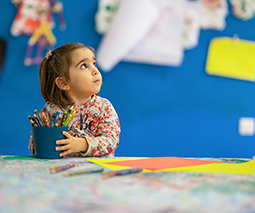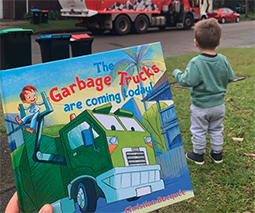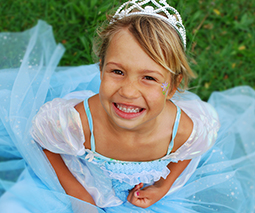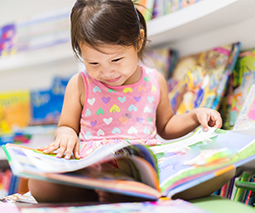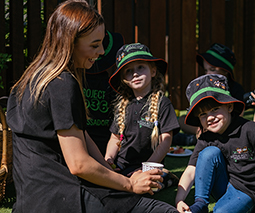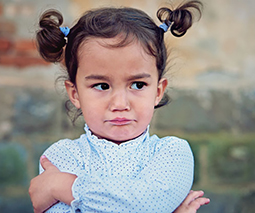6 reasons your three-year-old might be acting more difficult than usual
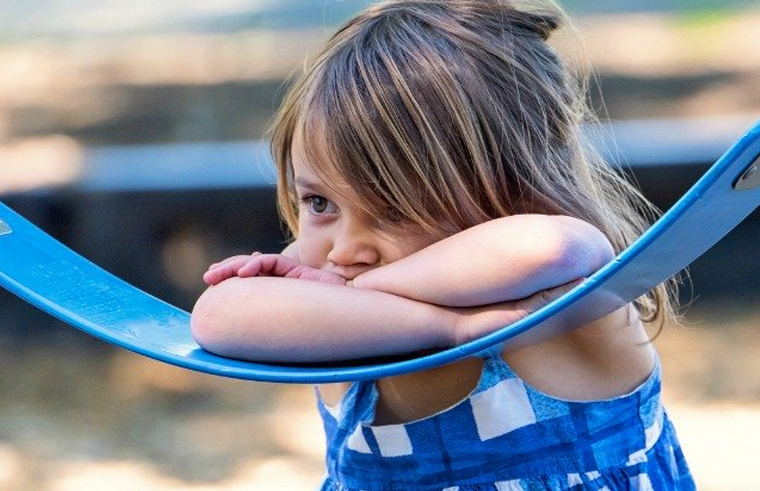
‘Threenagers’ get a pretty bad rap with all their big emotions and sassy theatrics. It can be easy to write off their challenging behaviour as just being part of their difficult nature, but when you stop to think about it, these little people have a lot going on in their world.
After all, if we want the theatrics and behaviour to simmer down, it’s worth taking the time to consider what might be going on under all that noise so we can help them move past it. Below are just some of the changes and feelings that are common for three-year-olds to struggle with. Have you noticed a spike in difficult behaviour when any of these scenarios have occurred?
1. Starting a new preschool
Starting at a new preschool, or even if your three-year-old has moved levels within the same preschool, can be very unsettling. There will be new faces, new teachers and a new routine to contend with, all of which can take some time getting used to. If your child has just started preschool or daycare again for the year and you’re noticing an increase in the challenging behaviour, consider that this might be cause. A chat with you or an extra long cuddle at the end of the day should help her settle in with more ease – and hopefully mean the extra challenging behaviour passes soon too.
2. Getting a new sibling
Just had your second baby? No matter how much you prepare your firstborn it can still be a real shock to the system for them. If your three-year-old is acting out and seeking attention after you’ve brought home her brother or sister, this is very normal. After all, you have always been the centre of her world, and now she has to share you; this is a huge concept for a small person to grasp. Ensure you have as much quality time together as possible and that her routine is kept stable, and this stage should pass. Letting her help you with the baby can also ensure she feels involved and not pushed aside.
3. Dealing with big feelings
Three-year-olds need our help with organising their feelings. They’re simply too little to be able to understand what they’re going through and to process it in the way we’ve learnt to. If your three-year-old is whiny or crying a lot, or if you know that she’s been through a tough experience – for example, a friend leaving daycare, a scary dog in the park or a bed wetting episode, take the time to talk about it and help her put a name to the feeling she’s having trouble with. This process, plus a reassuring cuddle from you will help her move through it and get back to normal. Even better, the more you talk about feelings with her, the more able she’ll be to do it on her own as she gets older.
4. A need for connection
Children of all ages need connection with their parents, but little kids don’t know they need it and they don’t know how to ask for it. Instead, they’ll probably demonstrate whiny, needy and clingy behaviour to get our attention, which can be annoying for us. But if you swap out the word ‘attention’ for ‘connection’, this need becomes a lot more understandable. As their parents, our kids needs us to fill their emotional cup – meaning they get their little fix of unconditional love, support and encouragement just by being with us for a moment. Maybe it’s for a cuddle or some time on your lap, or a chat with you. As hard as it can be, next time your three-year-old is having one of those whiny days, try stopping for a long cuddle and focused time together.
5. Moving house
Moving house can be a very unnerving time for a three-year-old. The new place, despite having you in it with her, can take some time to stop feeling so unfamiliar for her. Until she settles in her new home, she might need some extra reassurance from you. Talking with her about other people who have moved house and finding ways together to bed in your new home might help with her transition.
6. Family tension
No family is perfect, and you’re not expected to be the couple that never argues – we’re all human after all. However, if your three-yea- old often hears arguing in the house, this could have some impact on her behaviour. Don’t be fooled into thinking your child is so engrossed in TV that she doesn’t notice the arguing. These kids are cluey and they notice when the energy shifts from calm to tense. But the process of the conflict is what counts here – talking about being angry and role modelling the compromise process can make this a healthy experience, rather than one that’s never talked about, or is handled badly.
